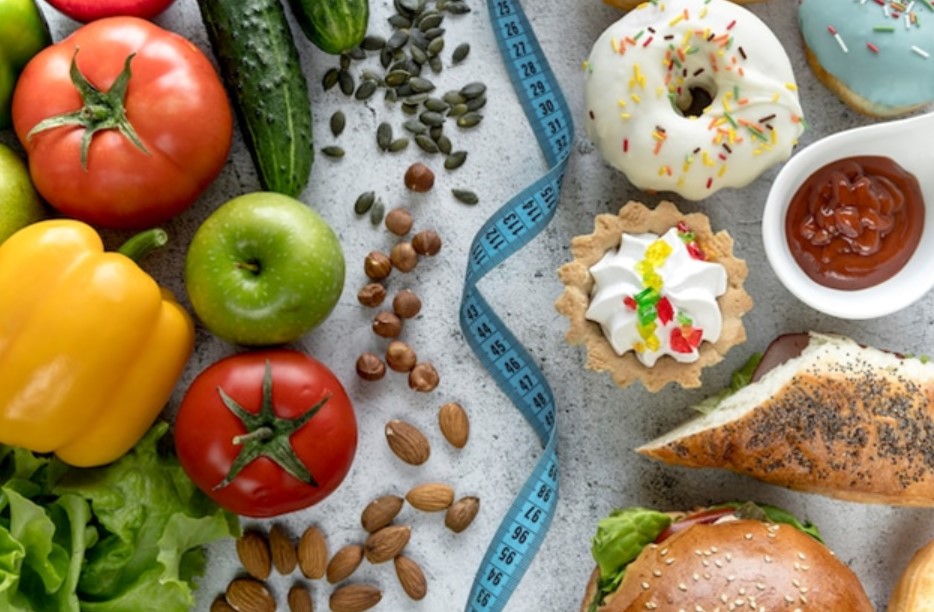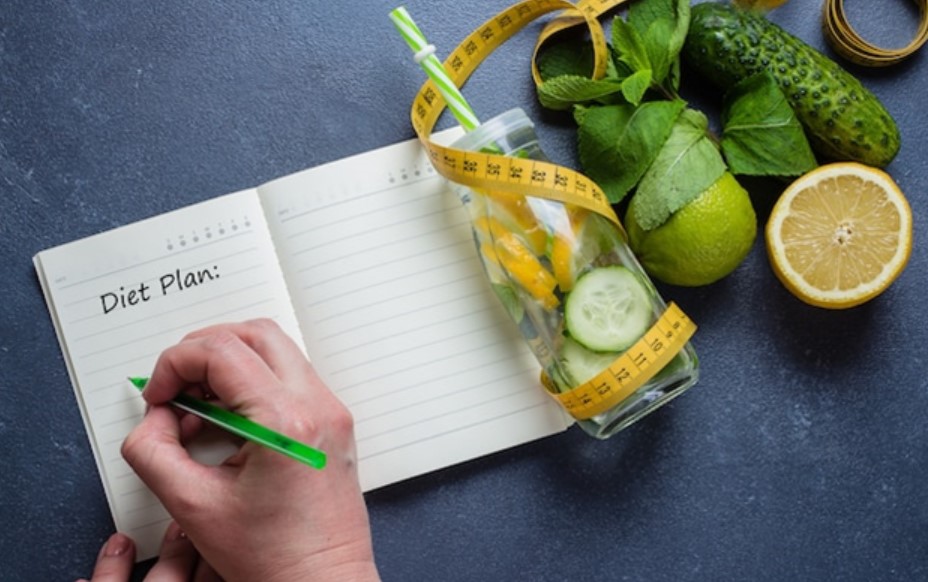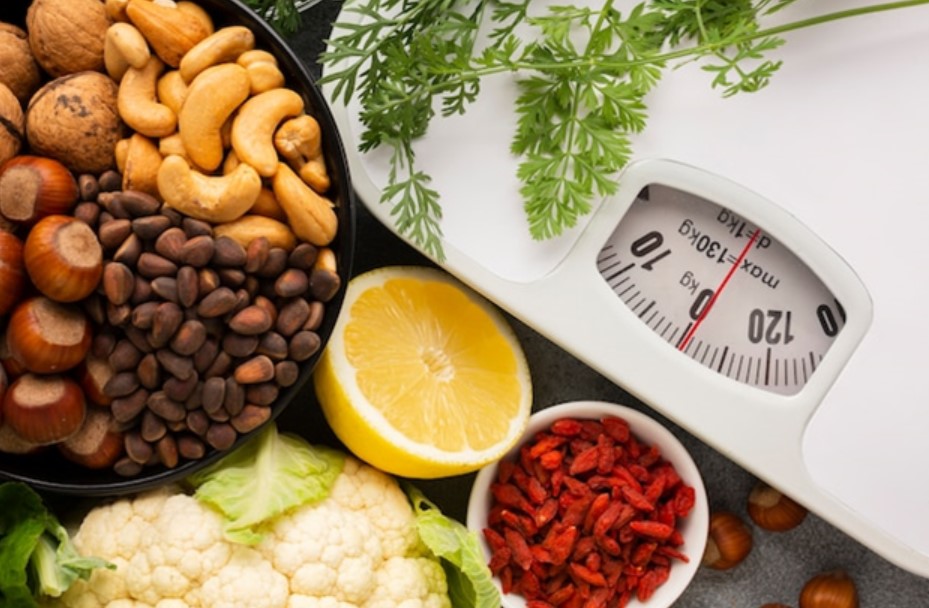A high-calorie diet can help you bulk up and build muscle with the right nutrition. But what exactly is a high-calorie diet, and who needs it?
In this blog post, we will dive into the world of high-calorie diets, discussing key ingredients and foods to include in your meals. We’ll also show you how to determine your calorie intake for muscle gain, along with the benefits and risks of a high-calorie diet.
It’s time to take control of your nutrition and achieve your fitness goals with a high-calorie diet!
What is a High-Calorie Diet?
The concept of a high-calorie diet can seem intimidating for those who are not familiar with it. However, the basic idea of this nutritional strategy is simple: consuming more calories than the body burns in order to gain weight. This type of diet is usually used by athletes and bodybuilders who want to build muscle mass and increase strength.
It’s important to note that a high-calorie diet must be balanced and nutrient-dense, focusing on foods like lean proteins, whole grains, fruits, and vegetables to provide essential vitamins and minerals. Consulting with a nutritionist or physician can help ensure that you are getting the right amount of calories and nutrients for your specific goals.

Who might need a High-Calorie Diet?
People who might need a high-calorie diet include:
- People who are underweight or have lost weight unintentionally
- People who are recovering from an illness or surgery
- People who are pregnant or breastfeeding
- People who have a high activity level
- People who have certain medical conditions, such as cancer, HIV/AIDS, or chronic obstructive pulmonary disease (COPD)
- Athletes and bodybuilders who are trying to gain muscle mass
A high-calorie diet can help people gain weight or maintain a healthy weight. It can also help people who are recovering from an illness or surgery get the nutrients they need to heal. However, it is important to talk to a doctor or registered dietitian before starting a high-calorie diet, as it is important to make sure that the diet is balanced and nutritious.
Here are some tips for following a high-calorie diet:
- Eat more frequently throughout the day.
- Choose foods that are high in calories and nutrients, such as nuts, seeds, avocados, and whole grains.
- Add healthy fats to your meals and snacks, such as olive oil, avocado oil, and nuts.
- Drink high-calorie beverages, such as milk, smoothies, and sports drinks.
- Make sure to get enough protein, as protein helps to build and repair muscle tissue.
It is also important to exercise regularly when following a high-calorie diet. Exercise helps to burn calories and builds muscle, which can help you to gain weight in a healthy way.
How to Determine Calorie Intake for Muscle Gain?
Ensuring the right calorie intake is essential for building muscle mass and gaining weight effectively. To determine your calorie intake, you need to calculate both your Basal Metabolic Rate (BMR) and Total Daily Energy Expenditure (TDEE). Your BMR indicates the number of calories needed for basic body functions, while TDEE helps determine how many calories you need to maintain your weight. After adding a surplus of calories to your TDEE, it’s crucial to monitor your progress and adjust your calorie intake accordingly for optimal muscle gain. Remember, the additional calories should come from nutrient-dense sources such as lean protein, complex carbohydrates, and healthy fats.

Calculating Calorie Needs for High-Calorie Diet
To calculate the ideal calorie intake for a high-calorie diet, it’s important to start with your basal metabolic rate (BMR). Your BMR is the number of calories your body needs to perform fundamental functions like breathing and digestion. Once you know your BMR, you can adjust it based on your activity level and workout intensity to determine your daily calorie needs for muscle gain. It’s recommended that these additional calories come from nutrient-dense sources such as lean protein, complex carbohydrates, and healthy fats.
Key Ingredients of a High-Calorie Diet
- Carbohydrates
Carbohydrates are a crucial component of any high-calorie diet aimed at building muscle. They provide the body with the energy it needs to fuel intense workouts and promote recovery. Whole grains, fruits, vegetables, and legumes are all excellent sources of carbohydrates that should be incorporated into your meals. It’s important to choose complex carbohydrates over simple ones to maintain steady blood sugar levels and avoid crashes. Athletes and bodybuilders should aim to consume 2-3 grams of carbohydrates per pound of body weight to support muscle growth. Remember that consistency is key when it comes to gaining muscle mass, so make sure you’re consuming enough carbs daily.
- Proteins
Incorporating enough protein into your high-calorie diet is crucial for building muscle mass. Without sufficient protein, your body won’t be able to repair and grow muscles after workouts. To make sure you’re getting enough, aim for at least one gram of protein per pound of body weight each day. Good sources of protein include lean meats, poultry, fish, beans, and lentils. You can also supplement with protein powders or bars to help meet your daily needs. Remember to space out your protein intake throughout the day and especially after workouts to support muscle recovery.
Foods to include in a High-Calorie Diet
Homemade protein smoothies
Smoothies are a versatile and delicious option for those looking to increase their calorie intake and support muscle growth. With the right ingredients, homemade protein smoothies can be an excellent addition to a high-calorie diet. By incorporating Greek yogurt, almond milk, fruits, and vegetables, you can customize your smoothie to meet both your nutritional needs and taste preferences. Additionally, adding protein powder and healthy fats like nuts or seeds can help boost the calorie content of your smoothie while providing essential nutrients for muscle recovery and growth. Experiment with different recipes to find the perfect blend for your goals.
Nuts and nut butters
Incorporating nuts and nut butters into your high-calorie diet is an excellent way to get healthy fats and proteins that aid muscle growth. Nuts like almonds, cashews, peanuts, and walnuts are among the best options for your diet. Nut butters like peanut butter, almond butter, or cashew butter can be used as a spread on toast or mixed with smoothies to add a quick calorie boost. However, it’s important to consume them in moderation because they are calorie-dense foods. So keep an eye on portion sizes while consuming these delicious and nutritious additions to your diet regimen.
Red meats
Red meats can be a valuable addition to a high-calorie diet for individuals looking to build muscle mass. These meats are packed with protein, iron, and zinc, all of which play an essential role in muscle growth and recovery. Lean cuts of beef like sirloin or round steak are ideal for those who want to limit their fat intake, while grass-fed beef is a good option for those seeking healthy fats like omega-3s. Other red meats such as lamb and venison can also provide important nutrients for muscle building. However, it’s important to balance red meat consumption with other protein sources and a variety of fruits and vegetables for overall health.
Potatoes and starches
Potatoes and other starches are a great addition to any high-calorie diet for muscle gain. They provide an excellent source of carbohydrates, which are essential for energy during intense workouts and muscle building. Starchy foods like sweet potatoes, quinoa, and brown rice are also high in fiber and other important nutrients that support healthy digestion and overall health.
A variety of tasty dishes can be made with potatoes, such as mashed or baked potatoes. When choosing starches for your meals, aim for whole grains like quinoa or brown rice instead of processed options like white bread and pasta. By including these nutrient-dense foods in your high-calorie diet, you can easily reach your daily calorie goals without resorting to unhealthy junk food.
Salmon and oily fish
Salmon and other oily fish are not only delicious but also provide a host of health benefits. These fish are an excellent source of protein, which is essential for building muscle mass. In addition, they are high in healthy fats, such as omega-3s, which have been shown to reduce inflammation and improve muscle recovery after exercise. Grilled or baked salmon can be enjoyed as a main dish or added to salads and sandwiches for a tasty and nutritious meal. Other types of oily fish like tuna and mackerel can also provide similar benefits. When selecting your fish, opt for wild-caught varieties over farmed options to maximize the health benefits.
Protein supplements
Adding protein supplements to your high-calorie diet can help you reach your daily protein intake goals, which is essential for building muscle mass. Whey protein is one of the most popular choices and is easily absorbed by the body. Casein protein is another option that provides a slower release of protein, making it ideal for consuming before bed. Vegans and vegetarians have options too, like pea or soy protein powders. It’s crucial to choose high-quality supplements from reputable brands to ensure you’re getting all necessary nutrients and avoiding harmful additives. Incorporating protein supplements into your diet can be an effective way to support muscle growth and repair.
Whole grain bread
Whole grain bread is an essential component of a high-calorie diet for muscle gain. Unlike refined grains, whole grain bread contains complex carbohydrates and fiber, which can provide sustained energy for workouts. Additionally, it is rich in essential vitamins and minerals such as iron and B vitamins. Consuming whole grain bread can reduce the risk of chronic diseases such as heart disease, diabetes, and cancer. Be sure to select bread made from whole wheat flour or other whole grains like spelt, quinoa, or rye. Avoid bread that contains added sugar or processed ingredients that can negate the health benefits of whole grains.
Avocados
Avocados are an excellent addition to a high-calorie diet. Despite their high calorie content, they provide numerous health benefits due to their nutrient-dense nature. They are rich in healthy fats, fiber, potassium, and vitamins that help support muscle growth and recovery. Avocados can be incorporated into various dishes such as salads, sandwiches, or smoothies. However, it’s essential to keep portion sizes in mind as they can contribute significantly to daily calorie intake. Including avocados in your diet can help you achieve your calorie goals while also providing essential nutrients for optimal muscle growth and repair.
Preventing Appetite Loss
As important as it is to consume enough calories for muscle gain, appetite loss can often be a hindrance to achieving that goal. Fortunately, a high-calorie diet can help prevent this issue by providing the necessary nutrients and energy for the body to function optimally. Foods rich in healthy fats and proteins such as nuts, avocados, chicken, fish, and beans can be included in the diet to help increase calorie intake without increasing portion sizes. However, it’s essential to balance a high-calorie diet with regular exercise to avoid gaining excess fat. Consulting with a nutritionist or dietician can also help create a personalized high-calorie diet plan for optimal muscle gain.
Let’s Sum Up
In conclusion, a high-calorie diet can be an effective way to bulk up and build muscle, but it needs to be done correctly. It’s essential to calculate your calorie needs carefully and choose the right foods to meet those needs. Additionally, it’s important to monitor your nutrient intake and keep an eye on potential health risks associated with a high-calorie diet. With the right approach, a high-calorie diet can help you achieve your fitness goals and build the muscle mass you desire. Want more tips and tricks for achieving your fitness goals?



